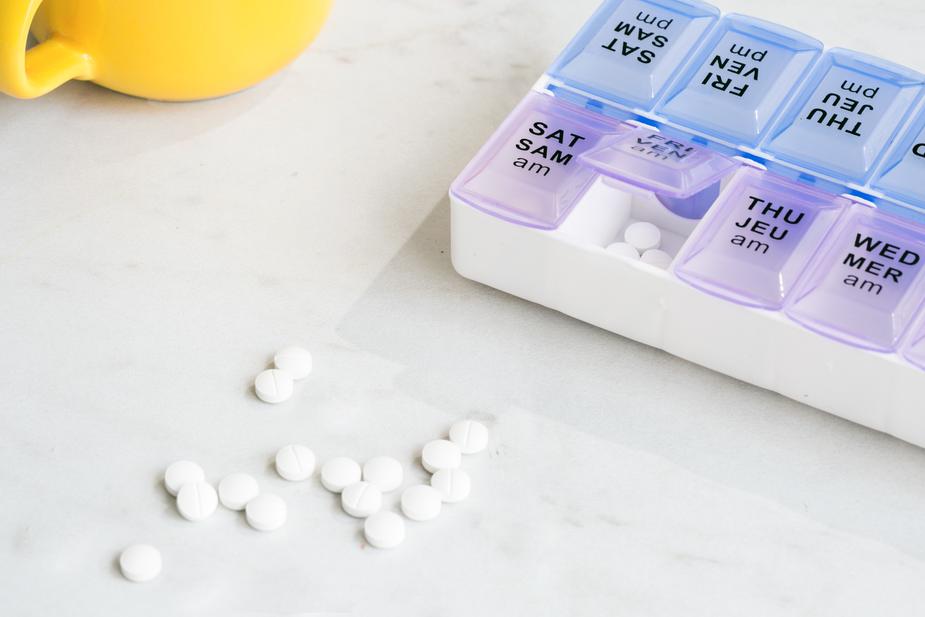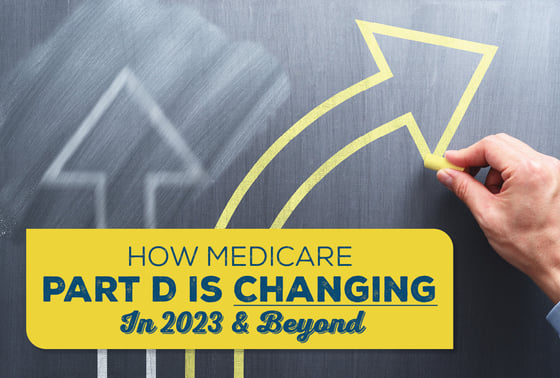Big changes are coming to Medicare Part D as a result of the Inflation Reduction Act (IRA), which was signed into law in August 2022. Part of this act targets prescription costs and other pricing issues facing Medicare beneficiaries.
Some of the most notable changes include free shingles vaccines starting January 1, 2023, a new $2,000 out-of-pocket maximum in 2025, and a "smoothed" cost sharing option to even out drug costs over the entire year.
Let's get coached up on how the IRA will impact your Medicare Part D clients each year, starting in 2023.
Related: How to Sell Medicare Part D
What Is the Inflation Reduction Act?
The Inflation Reduction Act (IRA) was signed into law in August 2022. This act makes investments to lower prescription drug, health care, and energy costs to create opportunities for America's 33 million small businesses and startups (The White House).
A portion of this act makes pretty significant changes to Medicare Part D, which start on January 1, 2023.

According to the press release from The White House, Americans pay 2-3 times more for their prescriptions than people in other wealthy countries. The IRA will help improve access to medication and lower drug prices in Medicare.
Related: 5 Steps to Help Medicare Clients Deal with Expensive Prescription Drugs
Each year, a few more changes take effect. We'll go through what to expect each year, starting January 1, 2023. You can also download the "Inflation Reduction Act: CMS Implementation Timeline" sheet for reference.
2023 Part D Changes
Two of the most notable changes coming to Part D in 2023 include:
- No-cost adult vaccines recommended by ACIP, which includes the shingles vaccine. Starting January 1, 2023, these vaccines are available to people with Medicare Part D at no cost to them.
- People enrolled in a Medicare prescription drug plan will not pay more than $35 for a month’s supply of each insulin that they take, as long as it's covered by their Medicare prescription drug plan and dispensed at a pharmacy or through a mail-order pharmacy. Also, Part D deductibles won’t apply to the covered insulin product.
By September 1, 2023, CMS will announce the first 10 Medicare Part D drugs selected for the new Drug Price Negotiation Program. The law requires that those 10 are chosen from a list of the highest-spending, brand-name Medicare Part D drugs that don’t have competition. The maximum fair prices negotiated for these drugs will go into effect in 2026.
Hopefully, the result of the changes coming in 2023 will be better access to prescription drugs and lower costs for Medicare beneficiaries.
2024 Part D Changes
Here are some of the most notable Part D changes going into effect in 2024:
- Starting January 1, 2024, people with Medicare prescription drug coverage who fall into the catastrophic phase of the prescription drug benefit won’t have to pay any coinsurance or co-payments during that phase for covered Medicare prescription drugs.
- The law provides for a mechanism beginning January 1, 2024 for the average premium increase across most Part D plans to be limited to 6% over the previous year. This protection continues through 2029. The law also provides for a mechanism to stabilize plan premiums in 2030 and subsequent years.
- By September 1, CMS will publish the maximum fair prices negotiated for the first 10 Medicare Part D drugs selected for negotiation. Maximum fair prices for these first 10 drugs will go into effect in 2026.

2025 Part D Changes
Starting in 2025, the following changes will take effect for Medicare Part D:
- People with Medicare Part D won’t pay more than $2,000 out-of-pocket for prescription drugs.
- Smoothed cost sharing will be a new payment option. This allows people with Medicare Part D to pay out-of-pocket Part D costs in monthly amounts spread over the year.
- The Manufacturer Discount Program in Medicare Part D will replace the Medicare coverage gap discount program. The new Manufacturer Discount Program will require manufacturer discounts for applicable drugs both in the initial coverage phase and in the catastrophic phase.
- Government reinsurance in the catastrophic phase of Part D will decrease from 80% to 20% for brand-name drugs, biologicals, and biosimilars and will decrease from 80% to 40% for generics.
- By February 1, 2025, CMS will announce 15 more Medicare Part D drugs for negotiation. By November 30, CMS will publish the maximum fair prices for the 15 Medicare Part D drugs selected for negotiation earlier in the year. Maximum fair prices for these drugs will go into effect in 2027.

2026 Part D Changes
These Part D changes will go into effect in 2026:
- Maximum fair prices for the first 10 Medicare Part D drugs selected for negotiation will go into effect. This is the first year that people with Medicare will start to benefit from Medicare negotiating prices with drug companies.
- By February 1, 2026, CMS will announce 15 more Medicare Part B or Part D drugs for price negotiation.
- By November 30, CMS will publish the maximum fair prices for the 15 Part B or Part D drugs selected for negotiation earlier in the year. Maximum fair prices for these drugs will go into effect in 2028.
- Beginning in 2026, government reinsurance in the catastrophic phase of Part D will be 40% for Medicare Part D drugs selected for negotiation in their applicability period.
2027-2029 Part D Changes
These are the changes coming in 2027:
- Maximum fair prices for the 15 Medicare Part D drugs selected for negotiation in 2025 will go into effect. This is in addition to the 10 Part D drugs whose maximum fair prices became effective in 2026.
- By February 1, CMS will announce 20 more Part B or Part D drugs for negotiation.
- By November 30, CMS will publish the maximum fair prices for the 20 Part B or Part D drugs selected for negotiation earlier in the year. Maximum fair prices for these drugs will go into effect in 2029.
2028:
- Maximum fair prices for the 15 Medicare Part B or Part D drugs selected for negotiation in 2026 will go into effect. This is in addition to the Part D drugs whose maximum fair prices became effective in 2026 or 2027.
- By February 1, CMS will announce 20 more Part B or Part D drugs for negotiation.
- By November 30, CMS will publish the maximum fair prices for the 20 Part B or Part D drugs selected for negotiation earlier in the year. Maximum fair prices for these drugs will go into effect in 2030.

And 2029:
- Maximum fair prices for the 20 Medicare Part B or Part D drugs selected for negotiation in 2027 will go into effect. This is in addition to the drugs whose maximum fair prices became effective in 2026, 2027, or 2028.
- By February 1, CMS will announce 20 more Part B or Part D drugs for negotiation.
- By November 30, CMS will publish the maximum fair prices for the 20 Part B or Part D drugs selected for negotiation earlier in the year. Maximum fair prices for these drugs will go into effect in 2031.
Conclusion
Hopefully, some of your Part D customers will notice a decrease in your prescription drug costs in the coming years.
We will keep you posted on more changes as they arise, including which prescription drugs are chosen for the Drug Price Negotiation Program.
Good selling!
Further Reading: The Independent Agent's Guide to Prospecting at Local Pharmacies


![The Simple Question That Drove $9M+ in Annuity Sales [Case Study]](https://blog.newhorizonsmktg.com/hs-fs/hubfs/NH-The-Simple-Question-That-Drove-9M-in-Annuity-Sales-Case%20Study%20(1).webp?width=220&height=119&name=NH-The-Simple-Question-That-Drove-9M-in-Annuity-Sales-Case%20Study%20(1).webp)


